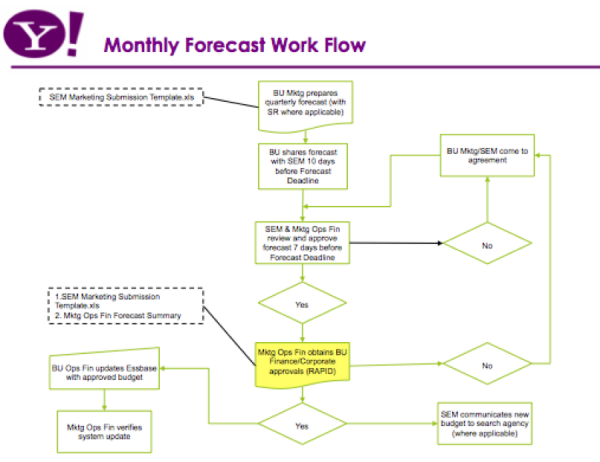The Relationship Between Enterprise SEO & PPC: SMX East Recap
During a whirlwind stay at SMX East, I had the enviable opportunity to speak at length about two of my all-time favorite topics: Enterprise PPC, and the relationship between paid and organic search. Enterprise PPC It was interesting to get some very different takes on Industrial Strength SEM from the seasoned pros seated next to […]
During a whirlwind stay at SMX East, I had the enviable opportunity to speak at length about two of my all-time favorite topics: Enterprise PPC, and the relationship between paid and organic search.
Enterprise PPC
It was interesting to get some very different takes on Industrial Strength SEM from the seasoned pros seated next to me on this panel, such as Frank Grasso, who deals with massive inventory-driven businesses like travel, retail, and events (tickets).
His sweet spot is optimizing from the ‘back-end’, integrating supply and demand to maximize the effectiveness of his customers’ campaigns. He has figured out how to manage and optimize, for example, when seats on a particular flight change value, or become unavailable, and to automatically change an SEM campaign accordingly. Great stuff.
By virtue of her role with Razorfish (Hey.. I used to work for them!), Rebecca Keen deals with huge consumer packaged goods (CPG) clients who have dozens of brands, working with them to achieve and maintain balance in their paid search programs.
She preached governance as the main driver of success for her clients, as the difficulties of keyword overlap and decision making loom large in her day-to-day work with CPG advertisers. I loved the part where she talked about RACI, a decision making framework I have used at Yahoo! and find very helpful in navigating complex corporate landscapes.
I did my soapbox presentation on valuation, because I can’t seem to get through a presentation without talking about it in nauseating detail (hint: it’s really important!). Make sure you get this right before you start buying clicks!
Other than that, my main message was that different SEM challenges require different approaches. Don’t get locked into a singular approach (inhouse vs. agency, build vs. buy) for every SEM problem. Use your finely-honed skills as a PPC ninja and make the best choice for your company depending on your particular needs, constraints, and priorities.
And, in the spirit of Rebecca’s RACI discussion, I had a riveting slide on forecasting workflow that I’m quite certain put at least one lucky attendee directly to sleep:

This workflow helps us manage PPC Planning and Re-forecasting
SEO & PPC – Why Can’t We All Just Get Along?
The following day, I was on this panel, which turned out to be lots of fun. First of all, this is a topic I could discuss for hours (not that anyone would want that). Second, I was sitting alongside Tim Mayer and Brad Geddes, two guys who have been at this gig at least as long as I have. Finally, this was somewhat of a late entry in my schedule, so I didn’t have much time to pull a presentation together, adding a certain amount of excitement to the whole experience.
Tim talked about ways to leverage different data sources to help one channel (SEO) inform the other (PPC), and vice versa.
Among other significant endeavors, Tim used to run some of the largest properties in Yahoo! In fact, he was even my internal customer for a couple of years. Small world!
Tim also showed some results from a recent Google whitepaper that concluded that 89% of PPC clicks were incremental to the SEO referrals and adwords advertiser gets. He did a great job illustrating how this number might be just a bit overstated. Come to think of it, Tim did work for every major search engine on the planet, except for Google…
For me, I basically put one slide up and talked to it for about twenty minutes. If you’ve ever seen me speak, you’ve probably seen this picture before:

Paid and Organic CTRs Show Positive Correlation
I talked a lot about how we set up a test to answer the question: “Should we be buying our brand keyword if we already rank #1 organically?”
I emphasized that there are a number of ways to get at this answer, only one of which we tried. In our case, however, the results were fantastic, as you can see by the positive slope of the regression line in the graph. The positive slope means that when we bought the ad above our organic listing, we actually increased the click through rate of the organic listing. What could be better than that?
Brad tied up our panel nicely by looking at similar issues with non-branded keywords, and in fact, illustrated some of the other ways to get at this age-old problem.
The good news is, most advertisers now have the data to analyze this somewhat intelligently, they just need to commit to doing the work. You’ve come a long way, baby!
I do enjoy speaking on panels at conferences, and SMX is definitely one of my faves. We search marketers are an odd (but adorable) bunch, and it’s always a blast to get together with our brethren to talk search, tip a few drinks, and exchange ideas. Until next time, cheers!
Contributing authors are invited to create content for Search Engine Land and are chosen for their expertise and contribution to the search community. Our contributors work under the oversight of the editorial staff and contributions are checked for quality and relevance to our readers. The opinions they express are their own.
Related stories
New on Search Engine Land